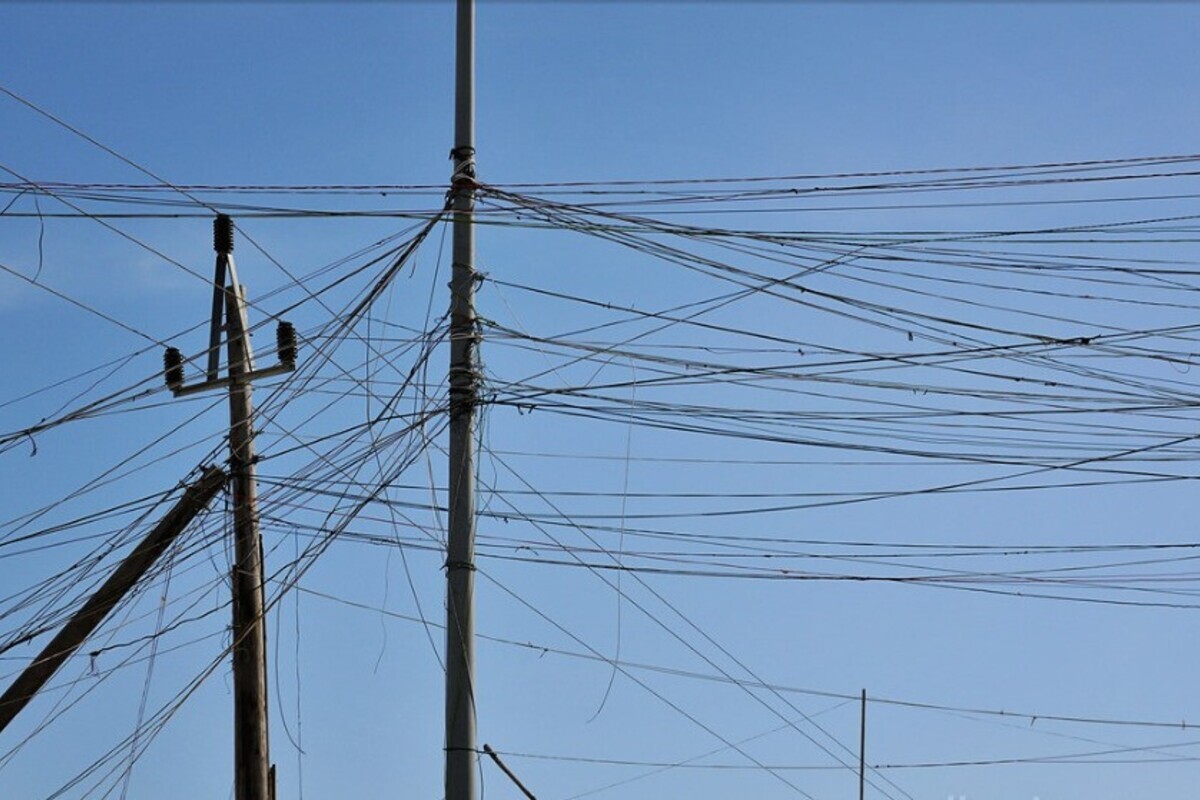Illegal electricity cables at Khayelitsha Community Health Centre are posing a serious hazard to patients and staff.
These cables, stretching across the clinic, come from unauthorized connections created by nearby Lindelani Park shack dwellers.
The cables, installed by residents seeking power for daily needs, are flagged as major safety risks, GroundUp reported.
Shack Dwellers Depend on Illegal Electricity
Residents of Lindelani Park, an informal settlement, face numerous daily challenges without access to basic services.
Lindelani Park leader Fezeka Dyabhaza explained that residents use the illegal connections to power lights and cook food.
“They want their kids to study in lit shacks. Candles and paraffin are too dangerous to use for lighting and cooking,” she said.
Safety Concerns at the Health Centre
Abulele Dyasi, spokesperson for the Western Cape Department of Health, highlighted the risk that these cables pose. “The electricity cables cut across the clinic, creating a huge risk,” Dyasi emphasized.
The cables run across various parts of the Khayelitsha health facility. This complicates safety assessments and increasing the likelihood of incidents involving staff and patients.
Occupational health and safety assessments have regularly flagged these illegal connections as an issue needing immediate attention.
Demand for Formal Electrification in Khayelitsha
Dyabhaza, alongside other community leaders of Khayelitsha, expressed a desire for a safer and formal power supply.
She believes that if residents had legal access to electricity, they would no longer need to risk their safety and that of the health centre by installing hazardous cables.
“If we get electricity, there will be no illegal connections hanging over the health centre,” she noted.
The Social Justice Coalition (SJC) is among the organizations urging authorities to provide Lindelani Park with safe, reliable electricity.
Bonga Zamisa, spokesperson for SJC, noted that illegal connections are often a “last resort” for underserved communities lacking essential infrastructure.
“This situation is a direct result of state failure – had the government prioritized and fast-tracked electricity installations in these areas, there would be no need for what’s often labelled as ‘illegal connections’,” he said.
Approval Delays Complicate Electrification Efforts
For Khayelitsha residents to receive official electricity, Eskom, South Africa’s primary electricity provider, must obtain permission from the City of Cape Town.
Zanele Bukani, Eskom spokesperson, explained that formal electrification plans are on hold until city authorities grant approval.
Additionally, Councillor Carl Pophaim, the Mayoral Committee Member for Human Settlements, explained that delays are partially due to plans to potentially relocate Lindelani Park residents, adding another layer of complexity.
“Official permission is in progress,” Pophaim noted. The City plans to submit the required documentation to Eskom soon, allowing for a safer solution to the community’s electricity needs.
Persistent Risks and Uncertain Timeline
Despite the planned formalization of electricity for Lindelani Park, no timeline for completion has been confirmed.
Meanwhile, illegal cables remain a threat to the Khayelitsha Community Health Centre, and the clinic staff continue to operate amid these hazards.
Without swift intervention, both the health facility and the surrounding community remain at risk.
Khayelitsha’s residents, advocates, and health officials agree that safe, legal power access is essential for the wellbeing of both the community and the Khayelitsha Community Health Centre.
Addressing this issue not only ensures patient and staff safety but also acknowledges the pressing needs of Lindelani Park residents for basic services like electricity.
What Should be Done About Illegal Connections in Our Communities?
Let us know by clicking on the comment tab below this article by emailing info@thesouthafrican.com, or by sending a WhatsApp to 060 011 021 1.
You can also follow @TheSAnews on X and The South African on Facebook for the latest news.
